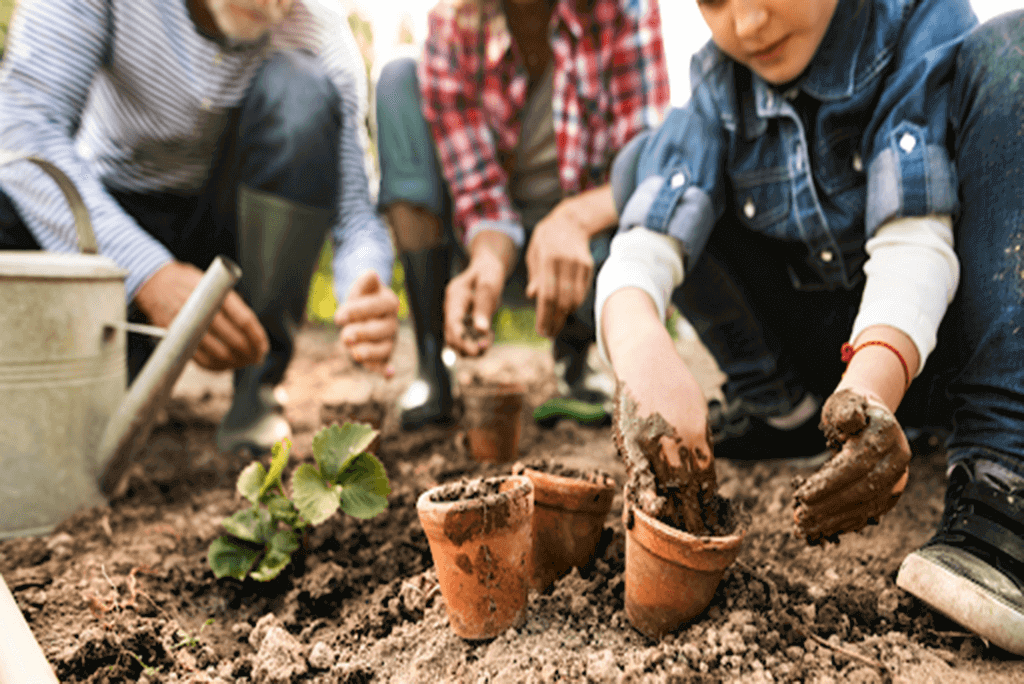This pandemic has taught us many lessons, especially the importance of being outdoors. Being outdoors teaches our children so many invaluable life lessons.
Gardening is an important life skill which we should introduce to our children.
It offers them the opportunity to connect with nature and learn about different species, plants, seasons and animals.
Here are just a few benefits of gardening with children:
Teaches them Patience
Today’s children are living in the world of instant gratification, video games, Netflix and ample food delivery options to cater to their wants. Today they don’t have to wait for a week for an episode to be telecasted, they just binge watch 10 seasons in a sitting.
Hence, it’s even more important to teach them patience and to slow down. Gardening teaches them patience. From planting a seed and waiting for the flowers to blossom, fruits and vegetables to sprout and grow is a long process but definitely the one worth waiting for. Children become invested in the process and learn patience through it.
Responsibility
Unlike video games gardening is a slow and long process. Growing plants and vegetables require a great deal of attention and care on a daily basis. Children quickly learn the importance of taking care of them daily, or the result of not watering for a day for example.
Encourages Healthy Eating
Teaching children to eat healthy is a real struggle for parents. It’s an established fact that children who engage in gardening also develop a keen interest in eating them. Children know the variety of food available; understand the whole plant cycle and appreciate the time and patience required to grow them. It teaches them to respect food and not waste it.
Other important life skill is to involve them in cooking after growing them.
Helps with Educational Topics
Gardening helps with a wide range of topics that are a part of everyday educational curriculum. The wider topics include seasons, weather, life cycles, animals and mini beasts. These topics children learn about from kindergarten right through their school lives.
It helps develop numeracy and literacy skills. Measuring and counting are mathematical concepts which are helpful in gardening. Reading instructions on how to complete tasks or know the name of different seeds develop literacy skills.
Counting seeds and petals, or describing colors and shapes of plants all help towards developing literacy skills.
Connect with Nature
Kids learn through hands-on involvement—and gardening offers your child just that.
When children plant a seed in the soil, they experience the miracle of nature first-hand as the seed turns into a life sustaining force. Children learn how to connect with nature and learn about their different species through gardening. Encouraging children to be involved in gardening makes them independent and appreciative of the world around them.
Develops Social Skills
Gardening can be a very sociable activity. Children gardening in groups learn so much together. They interact with each other and discuss each other’s progress in gardening. Gardening presents wonderful opportunities for children to bond and help each other.

